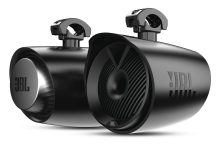Boat Financing Requires Planning Ahead
BoatUS gives10 tips on how to get a boat loan.

It’s almost prime-time boating season, and manufacturers are reporting that freshwater fishing boats, personal watercraft and pontoon boats are top sellers. What steps do you need to take to arrange financing for your dream boat? Here are 10 tips from the nation’s largest advocacy, services and safety group, Boat Owners Association of The United States (BoatUS).
- Boat loan basics: A fixed-rate, fixed-term, simple-interest loan is the most common, with the same monthly payment for the life of the loan, which typically vary from 10 to 20 years. Down payments from 10% to 20% are the norm. Variable rate or hybrid options may offer a combination of a fixed rate for a few years, then a variable rate. Remember to ask if there are prepayment penalties for paying off the loan early.
- Don’t be fooled by the ads: You may see rates advertised as low as 4%, but there is often some small print that could make that loan less attractive. For instance, the rate might only be fixed for a few years or the loan period might be shorter.
- Forever young: Generally, interest rates are lower and loan terms are longer for newer boats and larger loan amounts. However, each are dependent on a variety of factors including model year, loan amount and down payment. Be prepared for lenders to require larger down payments, have higher rates and offer shorter terms on older boats, especially those over 20 model years. There could also be a rate difference between some consecutive model years, so talk with your lender to better understand the rate and term structure.
- Calculate your monthly payment: Wondering how much of a loan you can afford? See our online boat loan calculators to compute your monthly payments. Your lender will also review your debt ratio and other criteria.
- Credit check: Before applying for a loan, ensure your credit report is accurate, and get your current credit score. The closer to 700 or higher, the better the rate you’ll get. A free copy of your credit report is available annually from each of the three national credit bureaus at annualcreditreport.com. To get your credit score, try checking your bank, credit card or auto loan statements, apps, or online accounts. If it’s not offered, speak to a credit counselor, use a fee-based service or purchase it from the credit service. More information is available at the Consumer Financial Protection Bureau.
- Get preapproved: Ask your lender if you can get preapproval or if you can start the underwriting process before you have a signed sales agreement.
- To HELOC or not? Thinking of using a home equity line of credit (HELOC) to buy your boat? You can still finance a boat using funds from a HELOC, however, keep in mind the Tax Cut and Jobs Act of 2017 eliminated the interest deduction on home equity loans for purchases made on a home equity line not related to your principal residence. That means boaters won’t be able to deduct any interest paid on a boat loan on their taxes.
- Your boat as a second home: Boaters may still deduct interest as the home mortgage interest deduction for one second home in addition to their primary home, and a boat can qualify as a second-home loan interest deduction if it has a berth, head and galley. To get this deduction, however, boaters must be able to itemize deductions on their returns. Passage of the Tax Cut and Jobs Act of 2017 capped the overall limit on the second-home deduction at $750,000 – most boat loans fall far below that threshold. For more details on the mortgage deduction on boats that qualify, go to IRS.gov. To learn about the mortgage deduction on boats that qualify, download IRS Publication 936. However, because everyone has different tax circumstances, it’s wise to consult a tax professional.
- Don’t count your chickens: So you’ve secured the loan and found your dream boat. Hang on. While you might think the boat is perfect, before any money is exchanged, hire a qualified marine surveyor to inspect the boat to ensure it is in good condition and decrease the chance of any unexpected repair bills. Also, many lenders will require a marine survey.
- Closing costs: As with any loan, there are some additional costs involved: sales tax, processing fee, and title and registration fees are common. Ask your lender to give you an itemized list of closing costs so there are no surprises.































